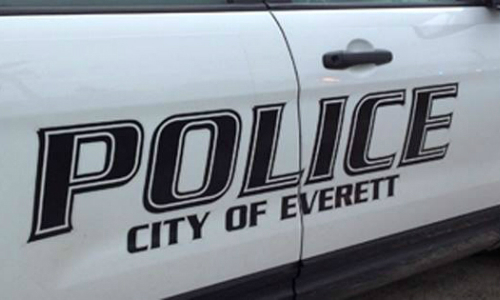False Alarm Fines in Everett, Wash., Will Be Sent to Alarm Companies
A new ordinance leaves it up to security dealers to pass fines to the alarm owners, plus companies will also be charged an annual license fee.

The Everett (Wash.) Police Department spends more than 2,000 hours a year responding to false alarms triggered by security systems, according to police statistics. (Photo: Everett Police Department Facebook)
EVERETT, Washington — In an attempt to curb dispatches to false alarms, the city council here unanimously voted to hit repeat offenders in their pocket books.
The Everett City Council unanimously voted May 22 to implement a false alarm fine to be charged each time a police officer is dispatched to investigate an alarm call and finds no evidence the activation was caused by criminal or attempted criminal activity.
The penalty will be $100 for residential alarms and $200 for commercial alarms.
The fine will go to the alarm company. It is up to them to pass the bill to the alarm owner. The companies will also be charged an annual license fee depending on how many alarm systems they operate in the city.
“The Everett Police Department responds to a significant number of false alarms that cause a considerable impact to police resources,” said Everett Police Capt. Greg Lineberry, via heraldnet.com, when he introduced the ordinance at a recent council meeting.
In 2017 and 2018, the police department received about 5,000 alarm calls each year, of which more than 90% were found to be false, according to police data. Responding to these calls, which averages about 13 a day, takes officers about 12.5 minutes per incident.
Only about 1% resulted in a case report showing there was some sort of criminal or attempted criminal activity involved, Lineberry said.
The Everett Police Department spends more than 2,000 hours a year responding to false alarms triggered by security systems, according to statistics reported by heraldnet.com.
Using approximations from industry associations, the city estimates there about 6,000 residences and 650 businesses, schools, churches and government buildings with alarm systems.
“In the absence of having a program to manage and discourage false alarms, we find ourselves responding to a lot of frequent flyers or locations that generate a lot of repeat false alarms,” Lineberry said.
The city had a false alarm fine which was instituted in the late 1970s. It was discontinued in 1991, when the regional dispatch service switched to a different software system that didn’t support false alarm billing, according to the Lineberry.
Also part of the new rule, alarm companies are mandated to use enhanced call verification (ECV) for intrusion alarms. This requires the alarm company to make at least two phone calls to numbers on a contact list to verify the validity of the alarm before calling 911. ECV is not mandated for robbery or panic type alarms, or if an alarm company is monitoring by sound or video and can visually or audibly confirm a crime is occurring.
The fine won’t be applied to some of the locations with the highest number of false alarm calls, heraldnet.com reports. These exemptions include the police impound lot, government buildings, and the Everett and Mukilteo school districts.
If you enjoyed this article and want to receive more valuable industry content like this, click here to sign up for our FREE digital newsletters!

Security Is Our Business, Too
For professionals who recommend, buy and install all types of electronic security equipment, a free subscription to Commercial Integrator + Security Sales & Integration is like having a consultant on call. You’ll find an ideal balance of technology and business coverage, with installation tips and techniques for products and updates on how to add to your bottom line.
A FREE subscription to the top resource for security and integration industry will prove to be invaluable.













